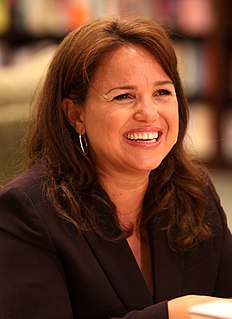A Quote by John F. Kennedy
Whatever one's religion in his private life may be, for the officeholder, nothing takes precedence over his oath to uphold the Constitution and all its parts - including the First Amendment and the strict separation of church and state.
Related Quotes
The First Amendment...does not say that in every respect there shall be a separation of Church and State....Otherwise the state and religion would be aliens to each other - hostile, suspicious, and even unfriendly....The state may not establish a 'religion of secularism' in the sense of affirmatively opposing or showing hostility to religion, thus preferring those who believe in no religion over those who do believe.
As you know, the separation of church and state is not subject to discussion or alteration. Under our Constitution no church or religion can be supported by the U.S. Government. We maintain freedom of religion so that an American can either worship in the church of his choice or choose to go to no church at all.
The "establishment of religion" clause of the First Amendment means at least this: Neither a state nor the Federal Government can set up a church. Neither can pass laws which aid one religion, aid all religions, or prefer one religion over another. Neither can force nor influence a person to go to or to remain away from church against his will or force him to profess a belief or disbelief in any religion.
The separation of church and state is necessary partly because if religion is good then the state shouldn't interfere with the religious vision or with the religious prophet. There must be a realm of truth beyond political competence, that's why there must be a separation of churches, but if religion is bad and a bad religion is one that gives an ultimate sanctity to some particular cause. Then religion mustn't interfere with the state - so one of the basic Democratic principles as we know it in America is the separation of church and state.
Let them all believe whatever they want. It is pointless to go on radio shows and wrangle over mystical claims. However, such claims must not be imposed on captive children in government-owned schools. That is prohibited by the separation of church and state, a core principle in the First Amendment in America's Bill of Rights.
The First Amendment and Fourteenth Amendment rights in the United States Constitution were being violated in Albany again and again - freedom of speech, freedom of assembly, the equal protection of the laws - I could count at least 30 such violations. Yet the president, sworn to uphold the Constitution, and all the agencies of the United States government at his disposal, were nowhere to be seen.
The First Amendment, however, does not say that in every and all respects there shall be a separation of Church and State. Rathe, it studiously defines the manner, the specific ways, in which there shall be no concert or union or dependency one on the other. That is the common sense of the matter. Otherwise the state and religion would be aliens to each other.

































